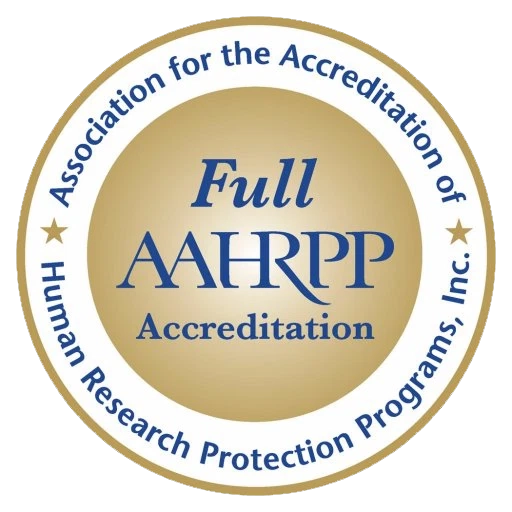A Blog About Nothing… Except IRB Oversight
What Seinfeld Teaches Us About the Everyday Ethics of Clinical Research
Seinfeld billed itself as “a show about nothing,” but fans know it was really about everything, just through the lens of life’s tiniest, strangest details. Whether it was a misread signal, a mistaken voicemail, or an improperly handled loaf of marble rye, the show found humor in how little things could spiral out of control.
In clinical research, that kind of spiral isn’t so funny.
That’s why IRBs exist. Their job is to catch the small things before they lead to big problems. Just like a neurotic New Yorker noticing their fruit had no flavor, IRBs notice ethical gray areas, unclear language or minor inconsistencies that could pose real risks to participants.
Here’s how some classic Seinfeld moments reflect the everyday importance of IRB oversight.
The Puffy Shirt: When Communication Goes Sideways
Episode: “The Puffy Shirt” (Season 5, Episode 2)
Jerry agrees to wear a ridiculous puffy shirt on The Today Show. Not because he wanted to, but because he didn’t understand what the “low talker” was asking. Miscommunication led to public embarrassment.
Now imagine a research participant agreeing to something they didn’t fully understand. Maybe the consent form was too technical. Maybe the investigator rushed the explanation. That’s not just awkward. It’s unethical.
IRB’s scrutinize the informed consent form to make sure it is written in understandable language and participants aren’t nodding along to something they don’t really comprehend. Because in research, “I thought you said yes” isn’t good enough.
The Parking Garage: Lost in the Details
Episode: “The Parking Garage” (Season 3, Episode 6)
The gang spends an entire episode wandering around a parking garage because they can’t remember where they parked. Just one missing detail can derail the entire day.
Clinical trials can be just as chaotic without clarity. Whether it’s a missing data collection step, unclear inclusion criteria or vague dosing instructions, confusion leads to protocol deviations and risk.
That’s why IRBs insist on well-structured, unambiguous documents. Participants, investigators, and sites all need a clear map. Otherwise, someone ends up wandering… and not metaphorically.
The Marine Biologist: Are You Really Qualified for This?
Episode: “The Marine Biologist” (Season 5, Episode 14)
George pretends to be a marine biologist to impress a woman—and it works. Until the moment he’s asked to save a beached whale, and everyone turns to him as the expert. What started as a harmless exaggeration becomes a full-blown crisis when he’s expected to perform under pressure.
That’s why the IRB doesn’t just review protocols—it reviews people.
Before research begins, IRBs assess whether the Principal Investigator and research team are truly qualified to conduct the study safely and ethically. This includes:
Reviewing credentials and relevant experience
Assessing the adequacy of training and resources
Confirming that the PI understands the protocol and risks involved
Because in research, it’s not enough to sound like an expert. When the stakes are high, someone has to make sure the person holding the golf ball knows what they’re doing.
The Dealership: When the Rules Are There… But No One Follows Them
Episode: “The Dealership” (Season 9, Episode 11)
In this episode, Jerry tries to buy a new car through Puddy, who’s now a car salesman. What should be a straightforward process turns into chaos thanks to mixed incentives, hidden information, and of course, Puddy’s lack of professionalism. Meanwhile, Kramer takes a test drive and refuses to return the car, pushing the fuel tank to “see how far it’ll go.”
What does this teach us? Even when there are rules, people don’t always follow them. Especially if no one’s watching.
That’s why the IRB isn’t just about setting the rules—it’s about ensuring accountability. IRBs:
- Monitor ongoing compliance
- Review amendments and deviations
- Require clear documentation of consent, and safety reporting
The IRB isn’t just about setting the rules. It’s about ensuring accountability.
Without oversight, even well-written protocols can go off-course. Like Kramer behind the wheel, you don’t want a trial coasting on fumes.
The Bottle Deposit: Following the Money
Episode: “The Bottle Deposit” (Season 7, Episodes 21–22)
Kramer and Newman hatch a scheme to drive a truckload of bottles to Michigan for the 10-cent refund. It’s a logistical mess, financially suspect and unsurprisingly, completely unregulated.
In clinical trials, anything involving money needs IRB scrutiny. From participant stipends to bonus payments and finders fees, financial incentives can influence behavior in subtle and not-so-subtle ways.
IRBs look for:
- Fair compensation practices
- Undue influence
- Transparency around funding sources and financial conflicts of interest
Because ethics can’t be recycled.
The Soup Nazi: Rules vs. Fairness
Episode: “The Soup Nazi” (Season 7, Episode 6)
“No soup for you!” became an instant cultural catch phrase. The character had strict rules, and if you didn’t follow them, you were out.
Sometimes research protocols look like that. Strict inclusion/exclusion criteria might unintentionally exclude vulnerable populations or contribute to health disparities.
IRBs ask:
- Are these criteria scientifically necessary?
- Do they ensure equitable access?
- Could they be revised to reduce bias?
Oversight doesn’t mean saying “no soup for you.” It means asking if everyone had a fair chance to get in line.
The Boyfriend: When Documentation Falls Apart
Episode: “The Boyfriend” (Season 3, Episodes 17–18)
George pretends to have a job at Vandelay Industries to keep his unemployment benefits. To make it seem legitimate, he lists Jerry’s apartment as the office and hopes no one checks.
In research, investigators can’t afford that kind of improvisation. The IRB ensures that study documentation is real, consistent and audit-ready. From site qualifications to safety monitoring plans, everything has to check out.
Because unlike George’s job history, research records are subject to serious review and serious consequences.
The Lesson: Oversight Is in the Details
Seinfeld made a joke out of life’s little moments. IRBs take them seriously. Because in clinical research:
- A misworded consent form can lead to misunderstanding
- A vague protocol can put participants at risk
- A missed red flag can turn into a regulatory finding
The role of IRB oversight is to look closely and ask, “What’s really happening here?” Just like Jerry, George, Elaine, and Kramer found trouble in the everyday, IRBs understand that the smallest moments can carry the biggest ethical weight. Attention to detail doesn’t mean slowing things down—it means getting it right the first time.
Sabai Knows the Details Matter
At Sabai, our IRB pays attention to the details that matter. We bring both scientific rigor and real-world perspective to every review because protecting people in research requires more than box-checking. It requires judgment, experience and yes, sometimes even a little observational insight.
We don’t make jokes about research ethics. But we know how to spot a story that’s about more than nothing.
Want your protocol reviewed by a team that notices the little things that matter?



